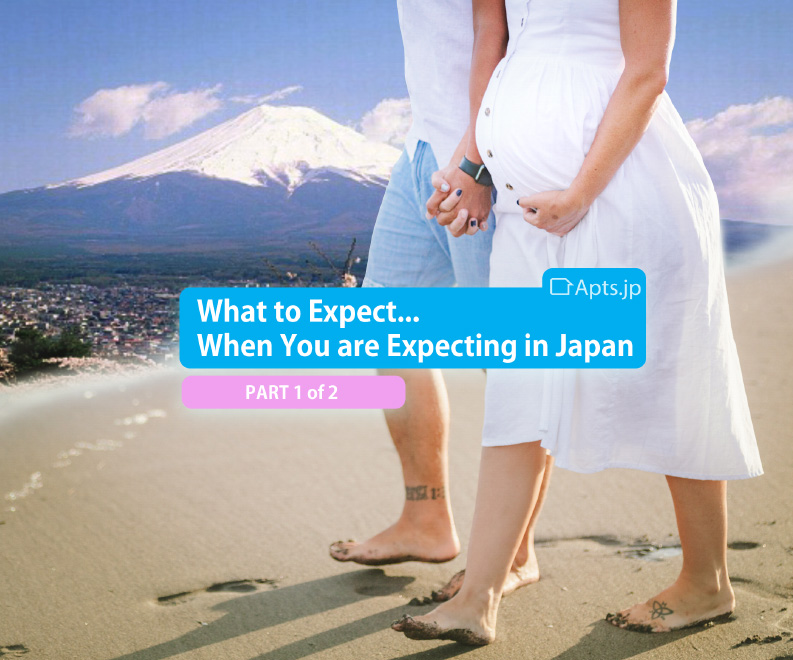
02 Nov What to Expect When You are Expecting in Japan Part 1
Last Modified on November 13th, 2020 at 07:27 pm
Category: Family, Health
(part 1 of our 2 part series, What to Expect When You Are Expecting in Japan – CLICK HERE for part 2)
Have you just found out that you are expecting?
Congratulations! This is an exciting time for you ahead!
Coupled with the excitement, is perhaps a stark realization that you are about to go through one of life’s most precious and personal moments, all while in a foreign country… Japan.
Or maybe you are considering trying to start a family and wondering if it is even possible?!
The good news is, Japan is a great country to start your family (or expand!), and there are many options for Expats. Although it may be a different experience to what you have been accustomed to back home, it’s not all that bad. Many western countries cover the expenses of childbirth, so it may come to you as a shock that you will have to pay for birth in Japan. Compared to USA standards, giving birth in Japan may actually save you money. Either way, it is doable, and there are benefits and financial support.
In this 2 part article, we want to help identify different points about giving birth in Japan that may differ from what you would expect.
In part 2, we will tackle all the paperwork and “have to do” tasks once you have welcomed your little one into this world.
So… Here is What to Expect When You Are Expecting, Part 1

Expect to… Book that Hospital Immediately
Congratulations, your pregnancy test came back positive! With no time to waste, you need to choose a hospital and book it for your birth. This might seem incredibly rushed, but with a massive country- approx 38 million people in the Greater Tokyo Area alone- hospital beds are scarce. This isn’t to scare you– you WILL be able to find a hospital, but researching a bit first on your priorities and what type of labor you desire will help your chances of getting the best birthing condition and right hospital for you.
Expect to… choose between a Hospital or Clinic. Which is the best option for me?
The biggest difference between Japanese birthing experiences and Western ones is the epidural. It is not common in Tokyo (even less common all over Japan), and not all hospitals can administer one. So if you are set on getting an epidural, you need to immediately book a hospital that performs one, because space is limited and they get snagged quickly. Most clinics that provide epidurals also require you to schedule your due date and bring on labor by inducing. So please put that into consideration when deciding on your birthing plan.
Here is a list of Hospitals in Tokyo that are very popular among Expats and provide English speaking doctors and midwives. These are the few that can also provide epidurals on demand instead of inducing.
Nisseki Red Cross Hospital Hiroo
English speaking doctor and staff
Water Birth Possible (although only under the perfect conditions)
All Natural/ No epidurals
http://www.med.jrc.or.jp/en/tabid/393/Default.aspx
Aiiku Hosptial, Minato
English speaking doctors and staff
On-Demand Epidural available
http://www.aiiku.net/international/departments.php
Sanno Hospital, Akasaka
English Speaking Doctors and staff
Epidural within business hours (9-5, M-F)
https://www.sannoclc.or.jp/hospital/english/
Seibo Hospital, Shinjuku
English Speaking Doctors and Staff
Epidural within business hours (9-5, M-F) or Scheduled Epidural
Tokyo Mothers Clinic, Setagaya
English speaking doctors and staff
On-Demand Epidural
Private Doctors:
Dr. Sakamoto and Dr. Sen are private traveling doctors who can perform epidurals or c-sections. The hospital they deliver at is Aiiku. You can choose whether you would like to have your appointments done with them at Aiiku or their clinic. Their fee is separate and an additional cost from the hospital bill. The benefit of choosing either of them is that you can have a personal doctor throughout your entire pregnancy who can perform epidurals at any time. If you choose a big hospital, you do not have a choice on which doctor you will get on the day of delivery (or possibly an epidural if you are outside of the allotted time frames)
247 Ladies Clinic, Omotesando
https://247l-clinic.com/doctor/
Dr. Sakamoto fluent in English and Spanish
Dr. Sen fluent in English, Mandarin, and Taiwanese
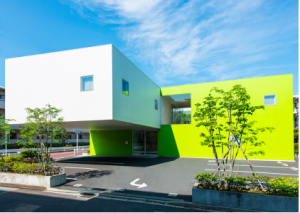
Here is What to Expect During Prenatal Care and Before Birth
Once the hospital or clinic confirms you are pregnant, it’s time to go to your city ward and register your birth! Such a fun step with making it official, even if you haven’t told anyone yet. Typically this is around 8-10 weeks pregnant, give or take. You will have a confirmation paper from the hospital to give to the ward. Each ward has slightly different benefits, some being more ‘baby friendly’ then others. Make sure to check what is specific to the town that you live in. They will then give you informational papers and some fun things in the package which are:
Mother and Child Handbook: You will need to bring this to all of your appointments and every baby vaccination after birth. This will hold all of your records for both you and your baby pre and postnatal, including the type of delivery you had. There is an English version, so make sure to ask for it.
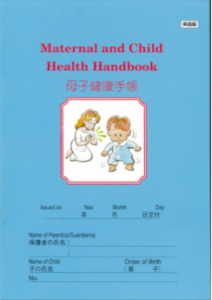
Discount Tickets: The city will issue a discount ticket book that you will fill out for each appointment until the delivery day. With these coupons, a normal check-up should cost only about ¥1,000. When having tests and blood work done, the price will be higher, but it is still very affordable.
Cute Pregnancy Badge: Since early on in pregnancy, it might be hard for someone to notice that you are actually carrying, you can wear this badge so that people know you are pregnant. This is extremely useful when on trains or buses and those tired legs just can’t stand anymore. Hopefully, someone will notice your badge and offer you their seat.
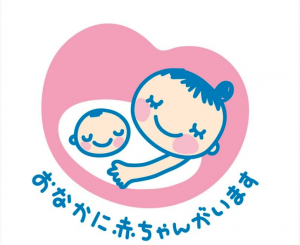
Delivery Lump Sum: The government wants to encourage people to help grow their dwindling population. With that in mind, they have offered a lump sum of ¥420,000 per baby for the birth that you can receive after delivery, typically paid directly to the hospital. So if you are expecting twins you can double that amount! Although this doesn’t cover all of the birthing fees, it is beneficial. Your hospital will provide you with the papers needed to fill out. You do need to prove that you are registered with a private or national health insurance. If you decide to return to your home country for birth but plan to return to Japan, you can still receive the full amount!
Expect to go to lots of appointment
If you plan to deliver at a large hospital, be prepared to wait a long time for your check-ups. Waiting times can be up to one hour, then another waiting time for payments after. If you can do your check-ups at a clinic approved by the hospital, that’s the best and fastest route.

What can you expect from these check-ups, and how often?
See that baby each time!
Yes, you get an ultrasound at each appointment, unlike other countries that only take them twice or a few times during the entire pregnancy. In fact, you may even get 4D ultrasounds each time, as well as lots of pictures to take home and show the family.
Schedule and Testings Can Be As Expected
As far as most testing and blood work, it is pretty similar to that of the States. You will be scheduled for an appointment once a month from 12 weeks until about 24 weeks, then twice a month until 36 weeks and every week from there on out.
If you want to do any special testings besides routine blood work, GBS, etc., you should check with the hospital from your first appointment what they provide.
Apply for Maternity Leave and Support
Women who have been working at their company for a consecutive of 12 months minimum can apply for maternity leave receiving 2/3 of salary covered by your health insurance. Certain conditions apply– check with your company for the process and what you can expect.
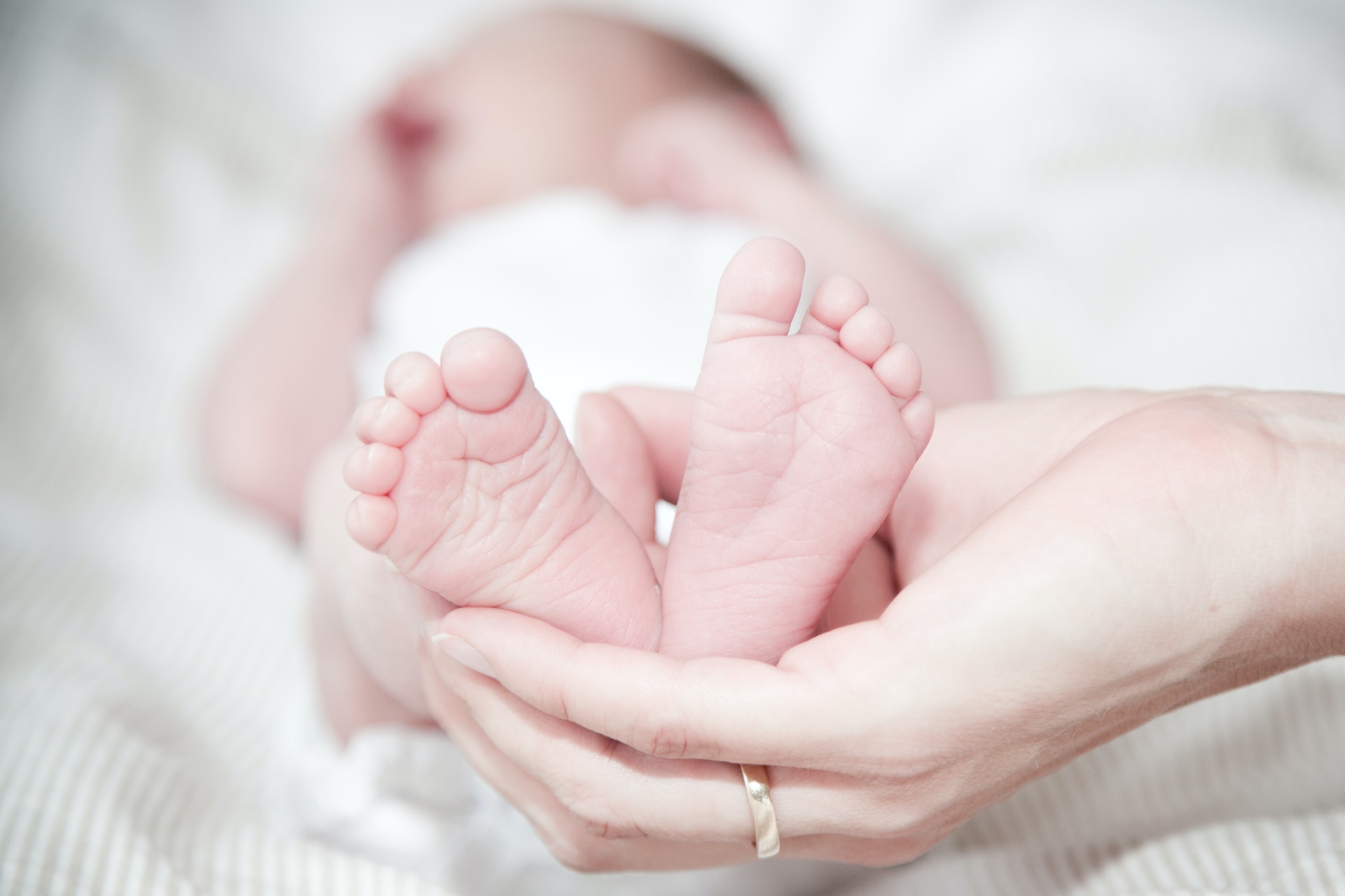
What Can You Expect During Delivery and Your Hospital Stay?
This is the biggest and most unique difference to Japan when it comes to your birthing experience. It may come as a surprise to you BUT plan to stay in the hospital after birth for some extensive care and a bit of relaxation.
Expect to Plan Your Delivery Ahead of Time
You should understand by the time you give birth, what type of delivery is offered at your hospital. Not all hospitals will let you move around or birth in different positions, so make sure to ask from the beginning what their philosophy on birth is when deciding where to go. No one wants to be surprised last minute before birth with what you can and can’t do.
Expect Long Hospital Stays
You typically will stay in the hospital for up to 5 days with a non-complicated birth in Tokyo. Expect a few days longer with a c-section. Surprising right?? But it’s actually not all that bad. During this stay, midwives will check in on you and your newborn regularly. Some tests, such as hearing tests and Vitamin K, will be done with your consent and your own check-ups to ensure your body is healing properly. If you are in a hospital or clinic with a nursery, midwives will even watch your baby in between feedings so that you can get some rest. Also, meals and snacks are provided. If you would like a western menu or have any allergies, make sure to specify before you deliver.
Of course, the unexpected could always happen. Still, with knowing these things ahead of time, you can give yourself a better advantage.
We know this is a lot of information to take in, but giving birth in Japan can be done! As mentioned above, the vouchers and lump sum alone might just be enough to persuade you to start a family (if you were already considering it, that is).

Now, how about all the steps you need to take after birth, including applying for a visa and registering your child with your home country? Spoiler Alert!!! Money vouchers keep coming even after your prenatal care! Learn all about this and more in our Part 2 on What to Expect After Your Baby Arrives. Coming next!
(part 1 of our 2 part series, What to Expect When You Are Expecting in Japan – CLICK HERE for part 2)